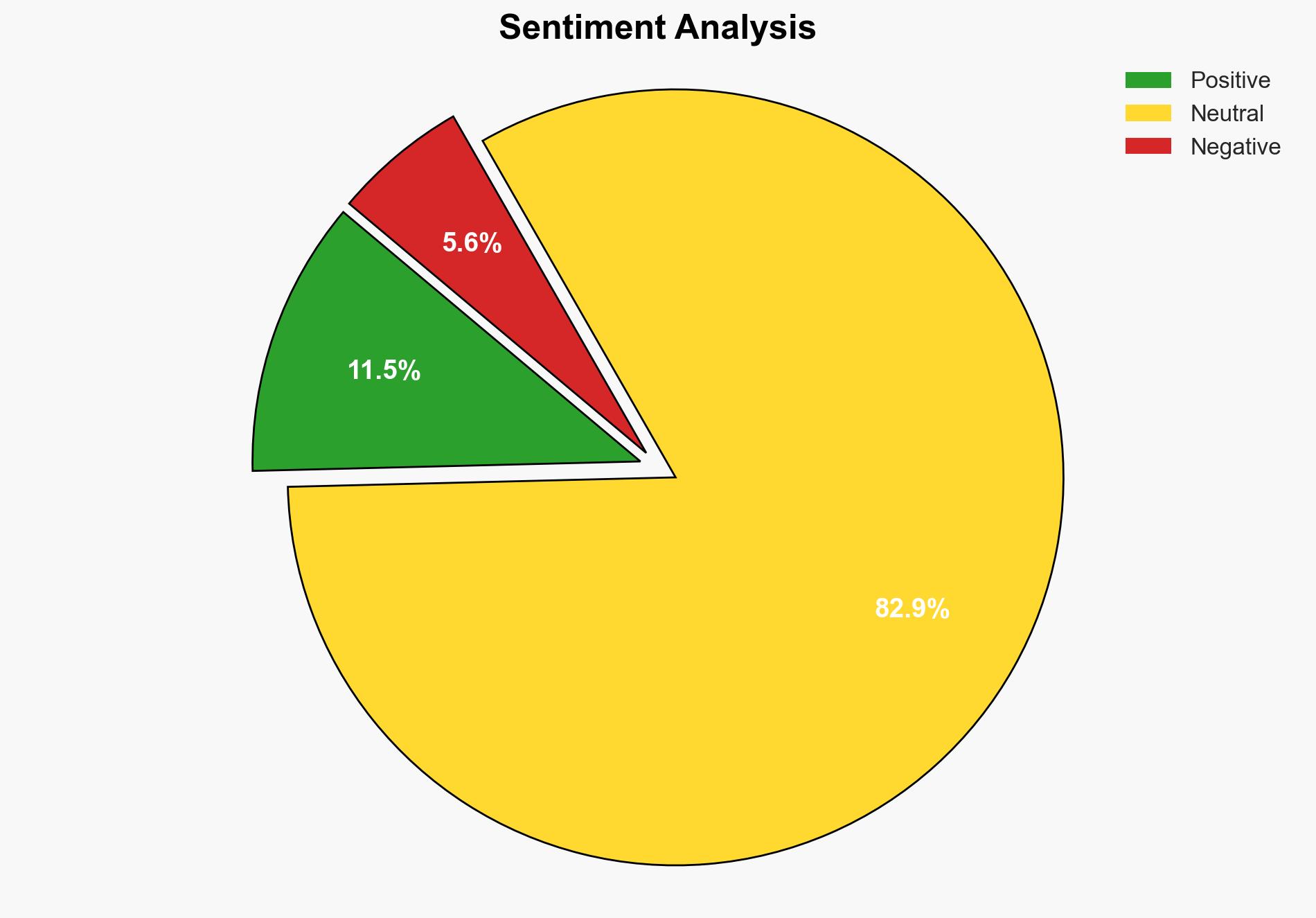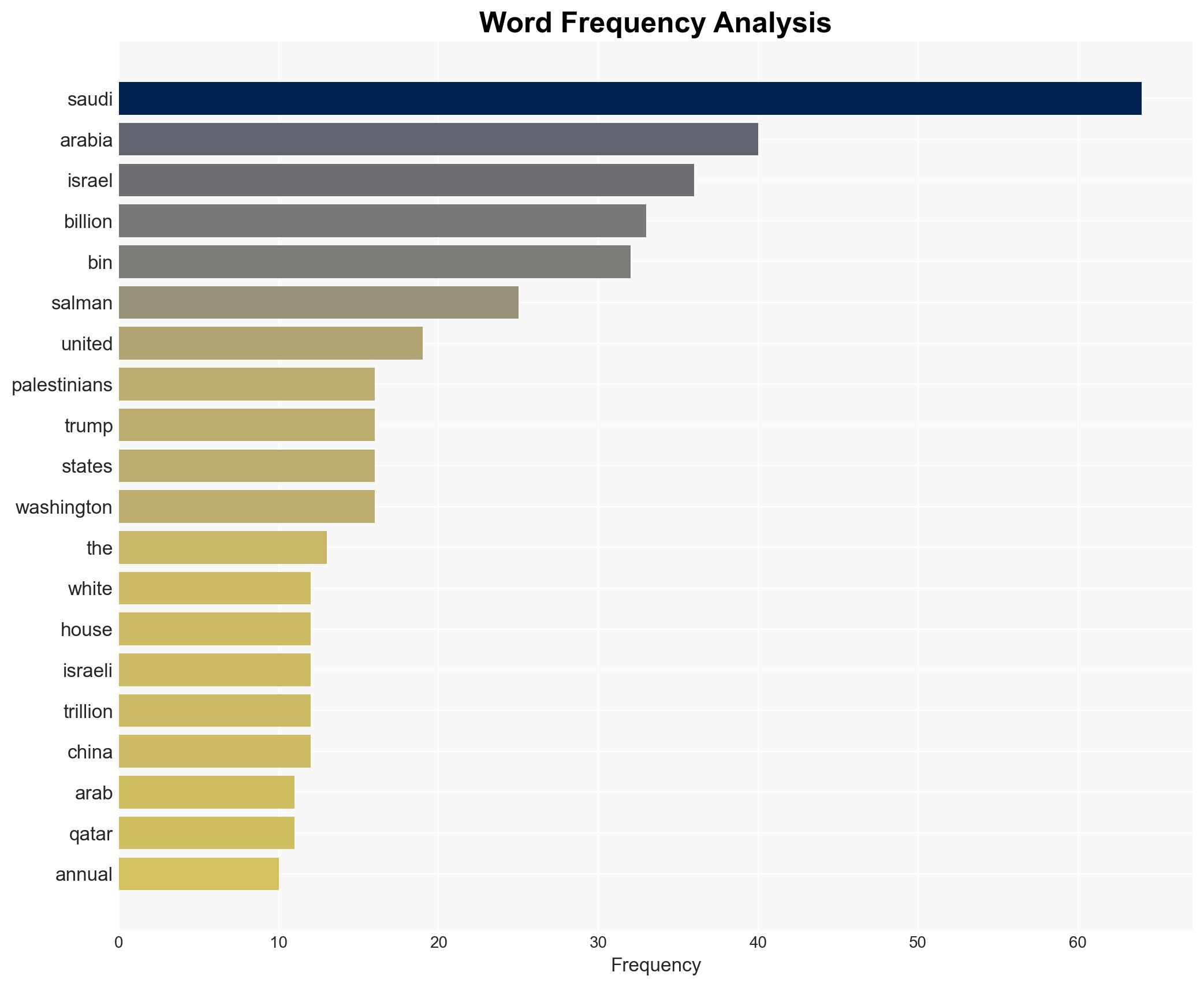Trump Pledges F-35s to Saudi Arabia in return for an unlikely 1 trillion in Investment Angering Israel Lobbies – Juancole.com
Published on: 2025-11-19
AI-powered OSINT brief from verified open sources. Automated NLP signal extraction with human verification. See our Methodology and Why WorldWideWatchers.
Intelligence Report:
1. BLUF (Bottom Line Up Front)
The most supported hypothesis is that the proposed F-35 sale and investment pledge are primarily symbolic gestures aimed at strengthening U.S.-Saudi relations and countering Iranian influence, rather than realistic economic or military commitments. Confidence level: Moderate. Recommended action: Monitor developments for shifts in regional alliances and prepare contingency plans for potential Israeli responses.
2. Competing Hypotheses
Hypothesis 1: The F-35 sale and investment pledge are genuine efforts by the Trump administration to solidify a strategic alliance with Saudi Arabia, potentially at the expense of U.S.-Israel relations.
Hypothesis 2: The proposals are primarily symbolic, intended to project strength and commitment to allies without realistic expectations of fulfillment, serving as a geopolitical maneuver against Iran.
Hypothesis 2 is more likely due to the implausibility of the $1 trillion investment and historical precedence of exaggerated claims in diplomatic engagements.
3. Key Assumptions and Red Flags
Assumptions: The U.S. administration has the capacity and willingness to follow through on the F-35 sale. Saudi Arabia has the economic capability to fulfill the investment pledge.
Red Flags: The $1 trillion figure is unprecedented and lacks supporting evidence. Historical exaggeration in diplomatic rhetoric by involved parties. Potential for misrepresentation of intentions to domestic and international audiences.
4. Implications and Strategic Risks
The proposed actions could strain U.S.-Israel relations, potentially leading to political backlash domestically and from Israel’s allies. There is a risk of escalating tensions with Iran, which may perceive strengthened U.S.-Saudi ties as a direct threat. Economically, failure to deliver on the investment pledge could undermine U.S. credibility in future negotiations.
5. Recommendations and Outlook
- Monitor Saudi and Israeli diplomatic channels for reactions and potential shifts in alliances.
- Engage in backchannel communications with Israel to reassure and mitigate concerns over regional security dynamics.
- Best-case scenario: Strengthened U.S.-Saudi relations without significant fallout with Israel.
- Worst-case scenario: Breakdown in U.S.-Israel relations and increased regional instability.
- Most-likely scenario: Symbolic gestures with limited tangible outcomes, maintaining status quo.
6. Key Individuals and Entities
Donald Trump, Mohammed bin Salman, Israeli government, U.S. administration, Saudi government.
7. Thematic Tags
Regional Focus, Middle East, U.S. Foreign Policy, Military Sales, Diplomatic Relations, Geopolitical Strategy
Structured Analytic Techniques Applied
- Causal Layered Analysis (CLA): Analyze events across surface happenings, systems, worldviews, and myths.
- Cross-Impact Simulation: Model ripple effects across neighboring states, conflicts, or economic dependencies.
- Scenario Generation: Explore divergent futures under varying assumptions to identify plausible paths.
Explore more:
Regional Focus Briefs ·
Daily Summary ·
Support us





